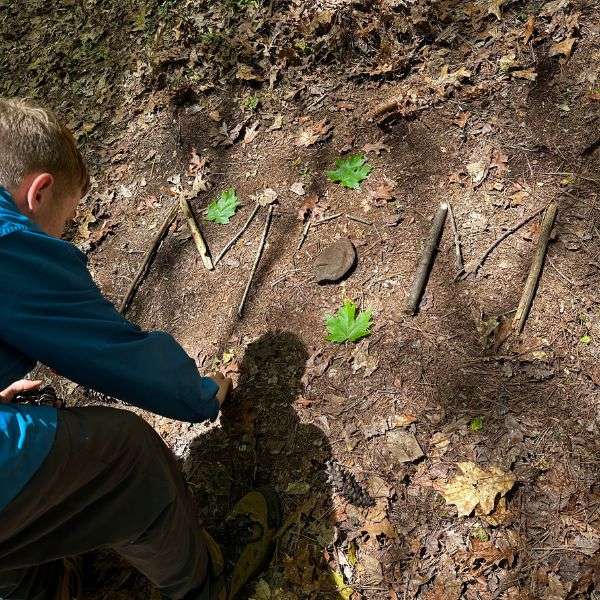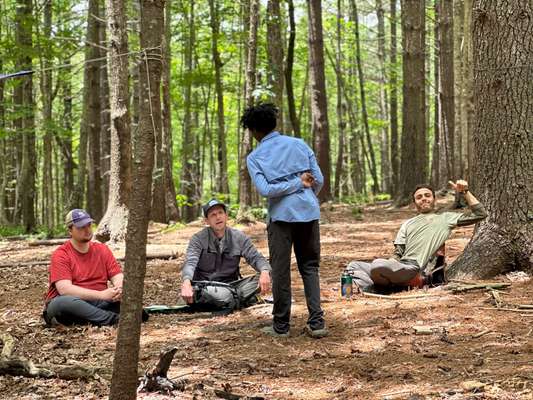In any family, it can be difficult to bond with your child or to form a firm foundation within your family system. If your child is adopted, those issues may be exaggerated beyond normal. The licensed clinicians at Blue Ridge Therapeutic Wilderness are experienced in supporting families and their adopted children who may be working through some attachment issues.
The Basics of Attachment
Attachment describes how a child reacts when separated from and then reunited with their parents. As you can assume, it indicates how healthy the relationship is between you and your child. These patterns are formed during infancy and early childhood but linger throughout life, impacting everything from neurocognitive development to social competence.
Psychoanalyst John Bowlby breaks attachment down into four categories:
Secure. Your child is upset when you leave and is easily soothed when you return.
Insecure anxious. Your child is upset when you leave and is tough to soothe when you return.
Insecure avoidant. Your child is not upset when you leave and ignores you when you return.
Insecure disorganized. Your child appears anxious and unpredictable. This is commonly due to parents who are either too involved in their child’s life, or are frequently emotionally unavailable (emotionally or physically).
Things like increased screen time, poor self-esteem, substance abuse, self-harm, suicide, eating disorders, sexual promiscuity and traumatic life events can be indicators of poor attachment between teens and parents. In extreme cases of abuse and neglect, a child may be diagnosed with Reactive Attachment Disorder.
No matter which style of parent-teenager attachment displayed in your family, the therapists at Blue Ridge can assist your family to explore the roots of these issues. Our expert therapists begin the healing process with your child by helping them to build up their self-esteem and putting a stop to self-harming behaviors. The wilderness environment provides consistent relationships with staff and peers based on mutual respect, trust and safety.
Ultimately, we communicate to all clients that they are worthy of being loved. After a student comprehends that in wilderness therapy, they begin to apply the implications to their family and parents, thus improving parent-child attachment.
What You Need To Know About Teens Who Are Adopted
Whether your child was adopted at birth, as a young child, or as an adolescent, you are still their parent. Research has shed light on the outcomes of adopted children versus non-adopted kids, especially in relation to attachment and mental health.
Adolescents who have been adopted (at any age) are more likely to experience attention-deficit/hyperactivity disorder (ADHD), oppositional defiant disorder (ODD), conduct disorder (CD), generalized anxiety disorder (GAD), major depressive disorder (MDD, depression), and separation anxiety. There is a higher chance that domestically adopted children have conduct disorder compared to adolescents who are not adopted.
Interestingly, an adopted child, as well as the parent and teacher, each report higher levels of disruptive behaviors in adopted children, which includes ADHD, ODD and CD. Research agrees, stating that the odds are doubled for adopted adolescents to have disruptive behavior disorders. 15 out of 100 adopted kids, compared with 8 out of 100 unadopted children, are diagnosed with ADHD or ODD.
Compared to domestically adopted teens, kids adopted from abroad were significantly more:
anxious
had more depressive symptoms
exhibited separation anxiety
struggled with academics
had issues with developing their identity
and experienced more psychiatric disorders.
Additionally, internationally adopted children who have a secure attachment with their adoptive parents exhibit less problems with attention problems and lower levels of hyperactivity.
Similarly, adopted children who are securely attached to their adoptive parents have greater interpersonal and parental relationships, and also display better adaptability and leadership skills. However, adolescents who were adopted at a later age were prone to more social problems than kids who were adopted at a younger age.
Being adopted is often associated with insecure and disorganized patterns of attachment. But adopted teenagers are able to form new attachment relationships with their adoptive parents, although their previous attachment relationships will impact the newly formed relationships.
Teens who have been adopted are twice as likely to see a mental health professional than an unadopted teenager. If your adopted son or daughter is exhibiting some of these problems, Blue Ridge may be the right place for him/her.
Therapists work with your adolescent to reflect back on their earliest memory of being separated from a caregiver. Together they explore the thoughts, feelings and behaviors associated with that time, including what the caregiver may have experienced. Your child will dive into their perspective on the relationship with you, Mom or Dad, as well as their siblings or additional caregivers.
We’re here to help your family.
Blue Ridge employs highly skilled and experienced therapists who are skilled in exploring and unraveling the specific dynamics of the adopted adolescent as well as other life circumstances that may lead to difficulties in attachment.
We seek to help families discover and address underlying issues that may contribute to their child’s struggles. With an individualized clinical regimen, the treatment team at Blue Ridge will integrate a personalized treatment plan for each student as they learn and grow in the wilderness, rediscovering their power and values and finding new ways to cope with tough emotions.
Whether your family is struggling with attachment issues or complications surrounding adoption, our compassionate staff at Blue Ridge desire to walk with your family through this season. Share what your family is experiencing so we can best understand how to help you and your teen. Contact us today to begin the path towards healing.


